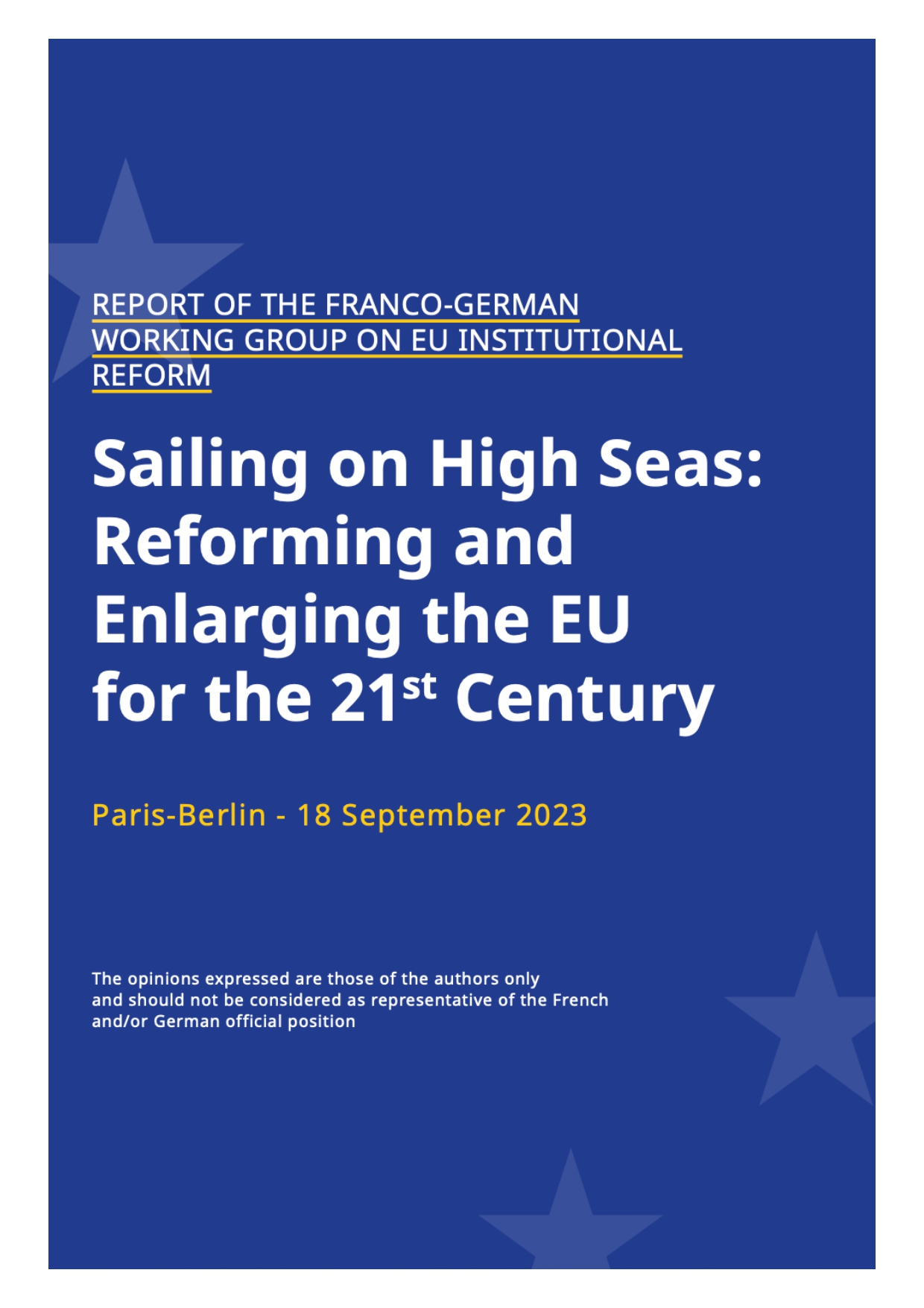The European Union must radically overhaul its decision-making and funding before it can accept more countries to join the 27-nation bloc by 2030, a paper commissioned from experts by the French and German governments said.
The Franco-German Report addresses three main topics: (1) the rule of law principle, (2) the institutional challenges the EU face, and (3) the enlargement of the EU.
As for the rule of law, it states that it is „a non-negotiable constitutional principle for the EU’s functioning and a precondition for joining the EU. Ultimately, the EU cannot function without reciprocity, mutual trust and without all its members adhering to its principles.” The authors suggest several recommendations to strenghten this basic principle, among others make the rule of law conditionality mechanism an instrument to sanction breaches of the rule of law and, more generally, systematic breaches of the European values enshrined in Article 2 TEU.
The biggest point of contention is certainly the question of institutional reform. The document concludes that the EU’s current institutions „lack agility and are penalised by complexity and an abundance of players”. The report suggests among others that
- the number of MEPs of an enlarged EU should not be increased beyond the current 751;
- before the next enlargement, all remaining policy decisions in the Council should be transferred from unanimity to qualified majority voting;
- closer ties between existing participatory instruments and EU decision-making and to use them to prepare for enlargement by involving citizens and stakeholders from candidate countries.
„For geopolitical reasons, EU enlargement is high on the political agenda, but the EU is not ready yet to welcome new members, neither institutionally nor policywise,” sais the French-German report, presented to EU ministers in Brussels. The document recommends „setting a goal for both sides (EU and candidate countries) to be ready for enlargement by 2030. It calls for breaking down accession rounds into smaller groups of countries (‘regatta’) to ensure a merit-based approach and to manage potential conflicts.”
Eight countries currently have official EU candidate status (Albania, Bosnia and Herzegovina, Moldova, Montenegro, North Macedonia, Serbia, Türkiye, and Ukraine) while two, Georgia and Kosovo, are potential candidate countries.
This Franco-German paper with its provocative ideas will be a useful tool to promote intensified discussions about the future of Europe.
